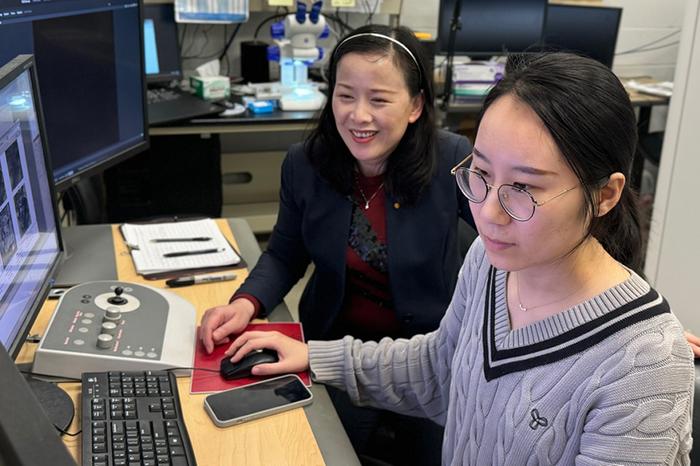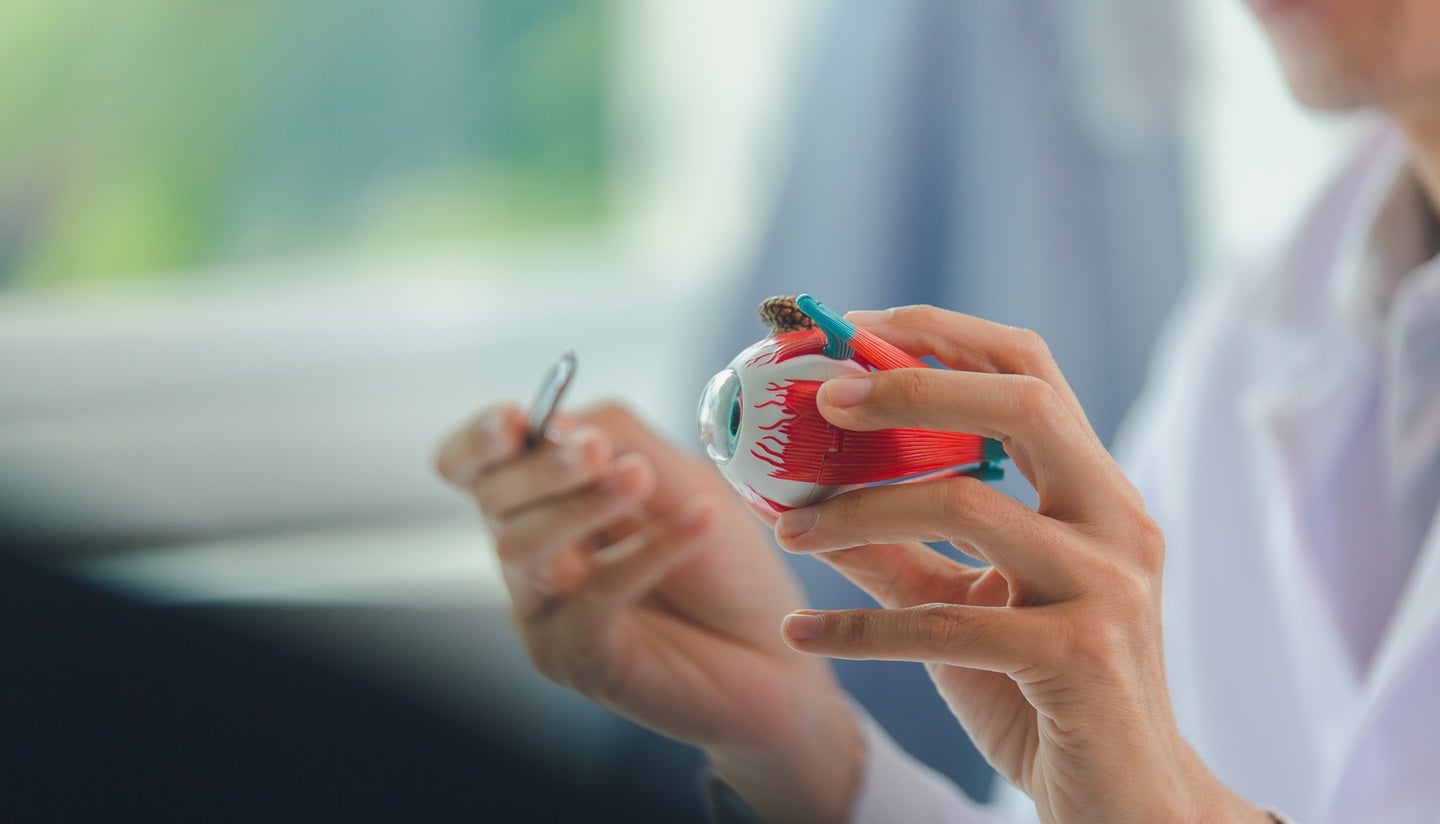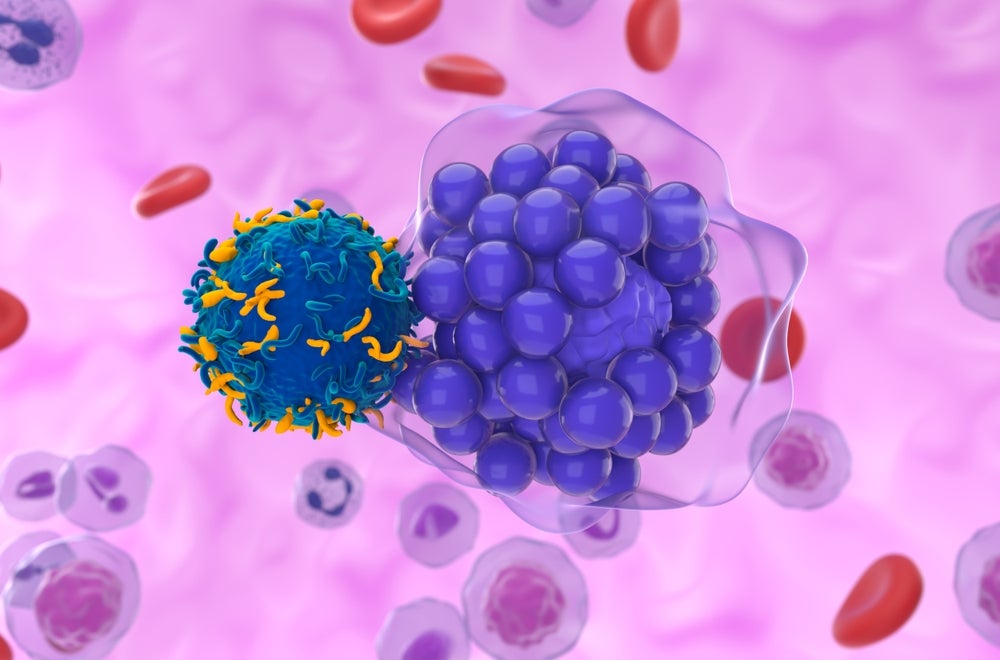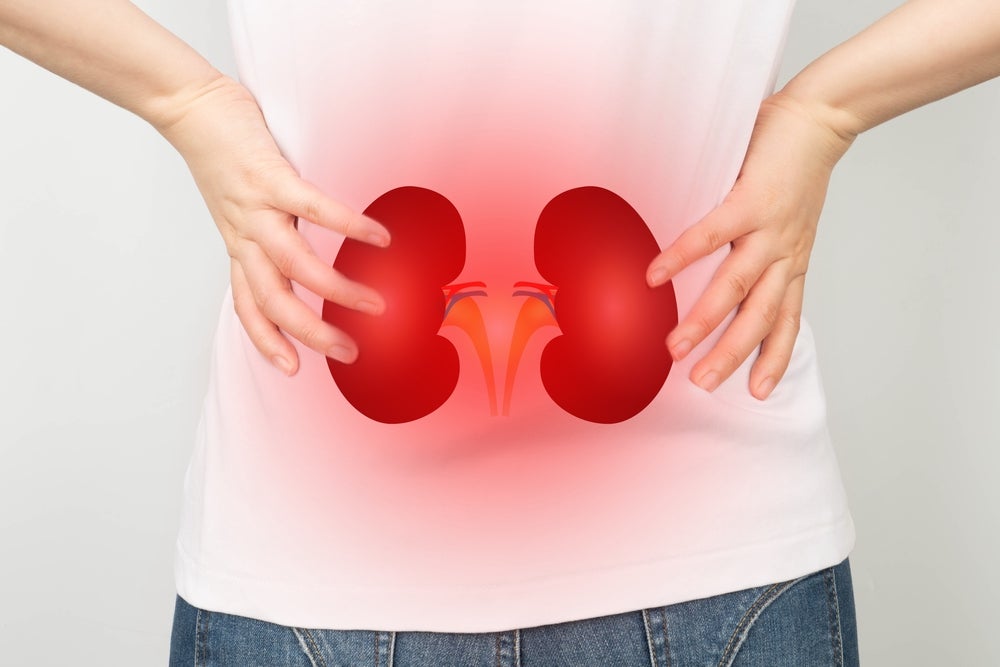Purdue researchers improve the plasticity of ceramic materials at room temperature
WEST LAFAYETTE, Ind. — Researchers in Purdue University’s College of Engineering have developed and validated a patent-pending method that could expand the industrial applications of ceramics by making them more plastically deformable at room temperature. Credit: (Purdue University photo/Yifan Zhang) WEST LAFAYETTE, Ind. — Researchers in Purdue University’s College of Engineering have developed and validated a patent-pending method that […]

WEST LAFAYETTE, Ind. — Researchers in Purdue University’s College of Engineering have developed and validated a patent-pending method that could expand the industrial applications of ceramics by making them more plastically deformable at room temperature.

Credit: (Purdue University photo/Yifan Zhang)
WEST LAFAYETTE, Ind. — Researchers in Purdue University’s College of Engineering have developed and validated a patent-pending method that could expand the industrial applications of ceramics by making them more plastically deformable at room temperature.
Plasticity or plastic deformability is a material’s ability to be deformed by compression, tension or shear into a specific shape or geometry without breaking. Typically, ceramic materials exhibit very limited plastic deformability under room temperature.
Haiyan Wang and Xinghang Zhang lead a Purdue team whose method improves ceramic room-temperature plastic deformability by first introducing high-density defects in brittle ceramics under high temperatures. Wang is the Basil S. Turner Professor of Engineering and Zhang is a professor of materials engineering in Purdue’s School of Materials Engineering.
“Such a strategy can prominently improve the room-temperature plastic deformability of ceramics, and holds the promise to inject ductility, or the ability to be drawn into near net shape, of ceramics in the near future,” Zhang said.
The research has been published in the peer-reviewed journal Science Advances. This approach complements their previous research about improving ceramic plastic deformability via the method of flash sintering, which was published in a 2018 issue of the peer-reviewed journal Nature Communications.
“Not all ceramic materials can be processed by the flash sintering method,” Wang said. “This new method can be generalized to nearly all ceramic materials.”
Ceramics: beneficial, yet brittle
Ceramic materials are used as structural materials in industries like aerospace, transportation, power plants and manufacturing; and in applications such as bearings in engines and machines, capacitors, electrical insulating materials, electrodes in batteries and fuel cells, and thermal barrier coatings in high-temperature machines.
They are mechanically strong and chemically inert; resist wear and corrosion; insulate against heat and electricity; and are harder, and have higher melting points, than metals. These attributes mean ceramic materials can be used to cut metals or contain molten metals and sustain high stresses at high temperatures.
Ceramics also are brittle at room temperature; they bend only at high enough temperatures when dislocation activity can be activated. Metals, by contrast, bend without breaking at room temperature.
Wang said ceramics have few dislocations, causing their brittle nature. Dislocations are defects in materials that change the arrangement of atoms in a structure.
“A dislocation can glide within crystals to enable plastic deformability at certain stress levels,” Wang said. “However, in ceramic materials, it is difficult to nucleate dislocations at room temperature, as the fracture stress in ceramics is much less than the stress to nucleate dislocations at such temperatures.”
Zhang said, “In contrast, metallic materials are ductile because they easily nucleate a very high density of dislocations. And dislocations are mobile in metals at room temperature, significantly improving their ductility. So the way to improve plasticity for ceramics is to nucleate abundant dislocations in ceramics before we start to deform them.”
Purdue technique to improve ductility
Wang said extensive efforts have been made to enhance the deformability of ceramics, but with only limited success.
The Purdue team has introduced dislocations into ceramic materials by preloading them during deformation at high temperatures. Chao Shen, a graduate student on the team, said once the ceramic specimens are cooled, the dislocations improve the plasticity of ceramics at room temperature.
“This method is more widely applicable to a broad range of ceramics than the method of flash sintering, since not all ceramic materials can be processed by flash sintering,” Wang said. “Preloading dislocations may also be much easier to scale up in practice for large-scale processing and treatment of ceramics than flash sintering.”
The technique has been tested and validated in their laboratory on various ceramic systems and ceramic pillars of different dimensions.
“After the preloading treatment, single-crystal titanium dioxide exhibited a substantial increase in deformability, achieving 10% strain at room temperature,” Zhang said. “Aluminum oxide also showed plastic deformability, 6% to 7.5% strain, using the preloading technique.”
The research team — including Wang, Zhang and R. Edwin Garcia, professor of materials engineering, and their graduate students — will collaborate with industry on large-scale demonstrations of this approach in various ceramics systems. The work has been supported by the U.S. Office of Naval Research.
Wang and Zhang disclosed the innovation to the Purdue Innovates Office of Technology Commercialization, which has applied for a patent from the U.S. Patent and Trademark Office to protect the intellectual property. Industry partners interested in developing or commercializing the work should contact Parag Vasekar, business development and licensing manager, physical sciences, at psvasekar@prf.org, about track code 68418.
About Purdue Innovates Office of Technology Commercialization
The Purdue Innovates Office of Technology Commercialization operates one of the most comprehensive technology transfer programs among leading research universities in the U.S. Services provided by this office support the economic development initiatives of Purdue University and benefit the university’s academic activities through commercializing, licensing and protecting Purdue intellectual property. In fiscal year 2023, the office reported 150 deals finalized with 203 technologies signed, 400 disclosures received and 218 issued U.S. patents. The office is managed by the Purdue Research Foundation, which received the 2019 Innovation & Economic Prosperity Universities Award for Place from the Association of Public and Land-grant Universities. In 2020, IPWatchdog Institute ranked Purdue third nationally in startup creation and in the top 20 for patents. The Purdue Research Foundation is a private, nonprofit foundation created to advance the mission of Purdue University. Contact otcip@prf.org for more information.
About Purdue University
Purdue University is a public research institution demonstrating excellence at scale. Ranked among top 10 public universities and with two colleges in the top four in the United States, Purdue discovers and disseminates knowledge with a quality and at a scale second to none. More than 105,000 students study at Purdue across modalities and locations, including nearly 50,000 in person on the West Lafayette campus. Committed to affordability and accessibility, Purdue’s main campus has frozen tuition 13 years in a row. See how Purdue never stops in the persistent pursuit of the next giant leap — including its first comprehensive urban campus in Indianapolis, the new Mitchell E. Daniels, Jr. School of Business, and Purdue Computes — at https://www.purdue.edu/president/strategic-initiatives.
Writer/Media contact: Steve Martin, sgmartin@prf.org
Sources: Haiyan Wang, hwang00@purdue.edu
Xinghang Zhang, xzhang98@purdue.edu
Journal
Science Advances
DOI
10.1126/sciadv.adj4079
Article Title
Achieving room temperature plasticity in brittle ceramics through elevated temperature preloading
Article Publication Date
17-Apr-2024
What's Your Reaction?

































